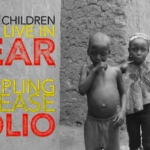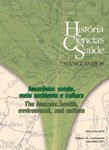May 2015
 The mhGAP Humanitarian Intervention Guide, recently released , contains first-line management recommendations for mental, neurological and substance use conditions for non-specialist health-care providers working in humanitarian emergencies.
The mhGAP Humanitarian Intervention Guide, recently released , contains first-line management recommendations for mental, neurological and substance use conditions for non-specialist health-care providers working in humanitarian emergencies.
The Guide will help accelerate the provision of mental health care to children and adults in countries impacted by humanitarian emergencies such as Syria, Yemen, and more recently Nepal.
The mhGAP Humanitarian Intervention Guide contains first-line management recommendations for mental, neurological and substance use conditions for non-specialist health-care providers in humanitarian emergencies where access to specialists and treatment options is limited. It is a simple, practical tool that aims to support general health facilities in areas affected by humanitarian emergencies in assessing and managing acute stress, grief, depression, post-traumatic stress disorder, psychosis, epilepsy, intellectual disability, harmful substance use and risk of suicide.
This new tool is an adaptation of WHO’s mhGAP Intervention Guide, a widely-used evidence-based manual for the management of these conditions in non-specialized health settings.

70-year-old Gayatri Chatse still feels as though the ground is moving. Since the earthquake she has suffered from anxiety disorder.
Read about mental health in HCS – Manguinhos:
Huertas, Rafael. Las obsesiones antes de Freud: historia y clínica. Hist. cienc. saude-Manguinhos, Dic 2014, vol.21, no.4, p.1397-1415. ISSN 0104-5970
Moura, Renata Heller de and Boarini, Maria Lucia. Family health through the lens of mental hygiene. Hist. cienc. saude-Manguinhos, Mar 2012, vol.19, no.1, p.217-235. ISSN 0104-5970
Gama, Jairo Roberto de Almeida. The formation of the field of psychiatry: two opposing perspectives. Hist. cienc. saude-Manguinhos, Mar 2012, vol.19, no.1, p.139-155. ISSN 0104-5970
Paiva, Ilana Lemos de and Yamamoto, Oswaldo H. In defense of psychiatric reform: for the dawn of a new unavoidable future. Hist. cienc. saude-Manguinhos, Jun 2007, vol.14, no.2, p.549-569. ISSN 0104-5970








